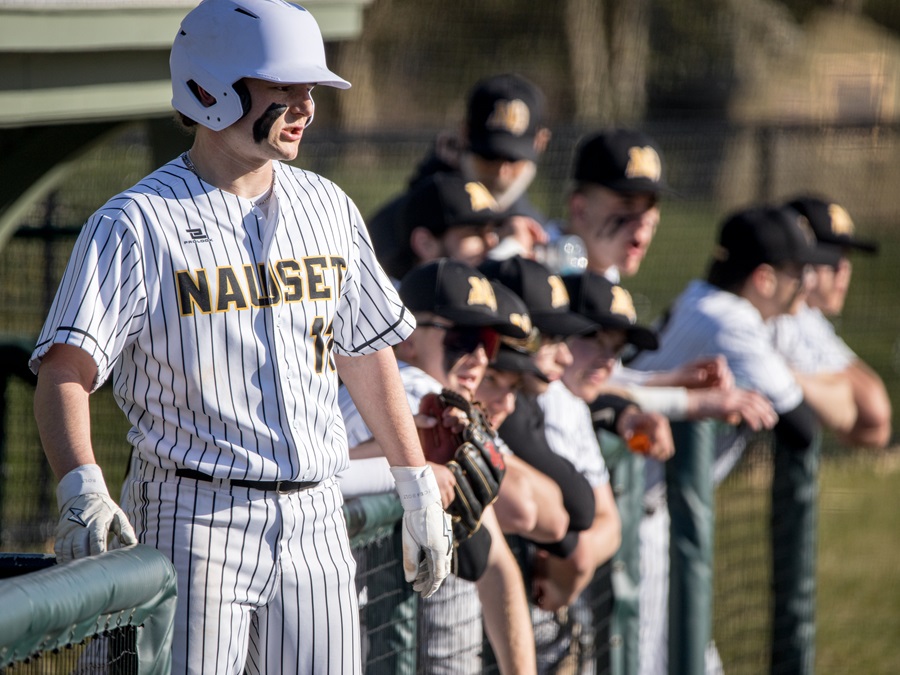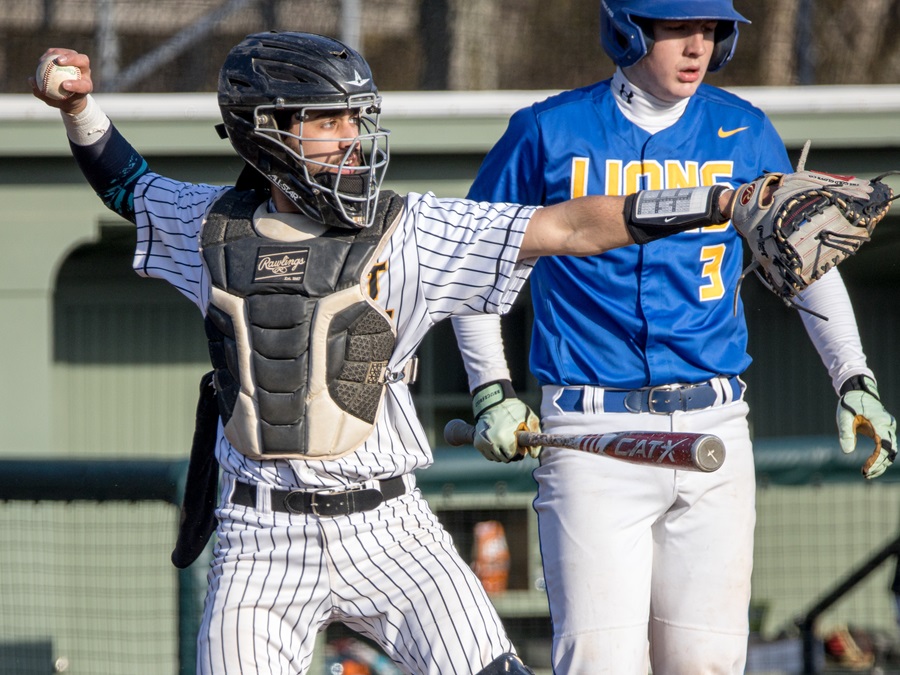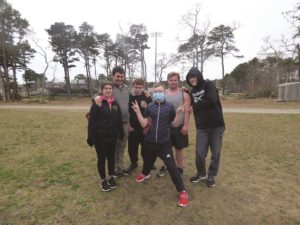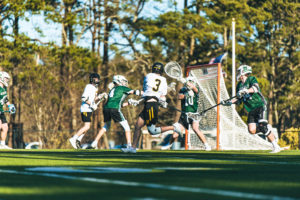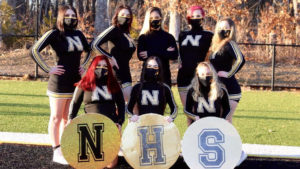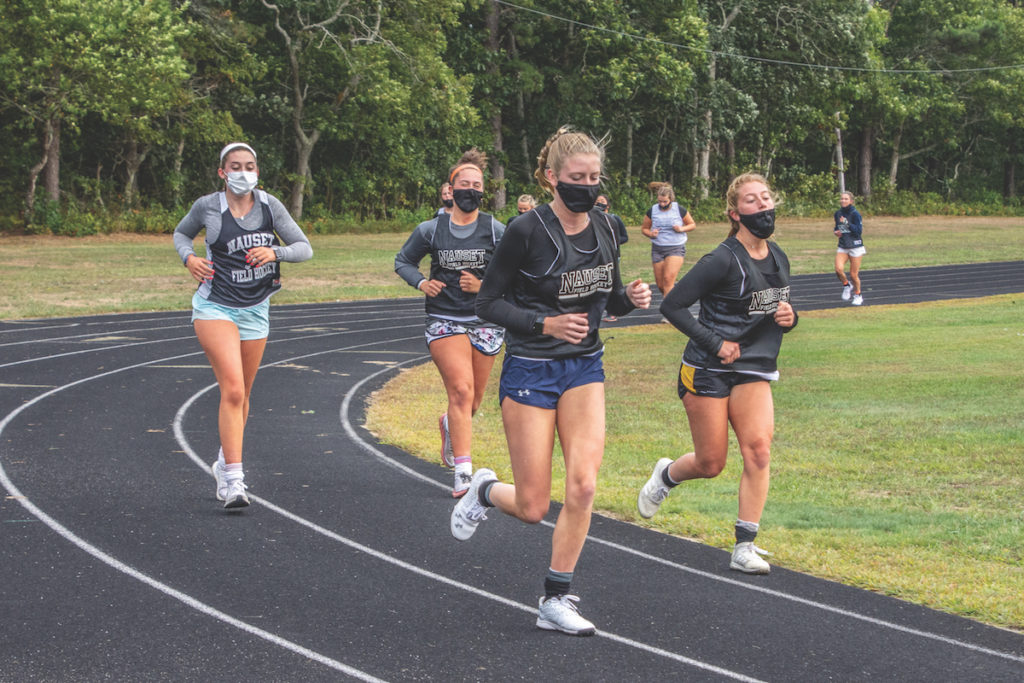EASTHAM — Coaches look to team captains to provide leadership that discourages disruptions and builds team unity. It can be a daunting task, and many captains are thrust into the role with little preparation.
Proponents of the importance of team chemistry need look no further than the recent news about former Colorado quarterback Shedeur Sanders to make their case. Projected by many to be a high first-round pick in the NFL draft, Sanders was not selected until round five. Although there were several reasons for his startling descent, one factor was the potentially disruptive effect of his off-the-field behavior.
Recognizing that captaining a team is a new role for many students, Nauset Regional High School Athletic Director John Mattson saw a need for some basic training that was “meaningful and sustainable.” He discussed his idea with Principal Patrick Clark, who recommended Orleans-based Cape Mediation to help develop and facilitate a leadership workshop. The first workshop, titled Fundamentals of Managing Team Conflict, was offered last year, before the 2024 spring season. The most recent, which was attended by 25 Nauset team captains and by a reporter for the Independent, took place at the end of March in the high school cafeteria.
“The idea is that we bring the captains together to talk about the challenges they are facing,” Mattson says. He sees it as a way to help captains navigate everyday team issues.

The workshop, offered at the start of every season, provides leadership tips as well as communication and conflict resolution skills through lectures, skits, and role-playing of situations that the captains might encounter.
“If you disagree but have the right communication skills, you can work it out,” said Cape Mediation’s Executive Director Anne Tessier. She and Program Specialist Allyson Rogers have developed and led each workshop pro bono.
Early in the workshop, Rogers and Cape Mediation board member Jane Lea performed two versions of the same role play with markedly different results. It was based on an overheard locker room conversation that left a new student mistakenly believing that she was not wanted on the team. When a captain, unaware of the back story, asked her to try out, the conversation escalated into a confrontation that left both participants upset and the new player storming out.
The second version had the captain listening more carefully and actively questioning to discern the root of the new player’s discontent. When it turned out that the overheard conversation had been misconstrued, the player happily agreed to try out. The next few minutes were spent in a lively discussion among the captains about how to use active listening and effective questioning to de-escalate a conflict.
A second exercise featured groups of four working through which of two players would be allowed to wear jersey number 12. Each player had compelling reasons to justify their position. The captains had to collaborate to decide who should get the number.
Coaches know that number assignment is tricky and can become a major source of displeasure. Some players identify closely with a particular number — for example, a birth date or one worn by a favorite professional. Coaches have been known to say that uniform distribution day, when numbers are assigned, is the worst day of the season.
This exercise generated enthusiastic debate. Its purpose was to encourage collaboration among the captains and to spur inquiry that would get at the reasons behind each player’s number request. Different groups arrived at different decisions, but the point of the exercise was to illuminate the process by which decisions were reached.
In a post-workshop survey, more than three-quarters of the captains found the material to be either “extremely relevant” or “very relevant.” More than two-thirds of the participants felt that they were “extremely likely” or “very likely” to use what they had learned.
Track captains Isaiah Robinson, Maddie Mahoney, and Adrianna Morgan saw many positive aspects of the work. Morgan, who lives in Brewster, said the session provided the “idea of perspective and hearing both sides.” Mahoney, from West Barnstable, said that “it guides you to making better decisions as a team.”
In track, there can be differing views on participation in relays and a need to compromise. Robinson, also from West Barnstable, credited skills he learned in a previous workshop with helping to tackle that problem. He noted that the “big thing is listening to everyone so that everyone feels heard.”
Truro’s Logan Poulin, a lacrosse and hockey captain, also said the workshops have taught him the importance of listening and that “you have to think before you speak.”
“You can tell the kids who have been through the program,” said football and lacrosse coach Jesse Peno. “It gives the players the skills to navigate everyday issues and it benefits them in the long run.” He feels strongly that “teams are more successful if they are peer-driven.”
Moira Nobili, Nauset’s longtime track and cross-country coach, concurred. “We shouldn’t be the leaders,” she said. “The kids should be the leaders.” Nobili said the workshops “make captains more aware that leadership is a responsibility.”
At the session’s conclusion, Mattson had the captains select a charity as the beneficiary of an in-season fundraiser. He emphasized that it was up to each team to decide how best to raise money. The captains, not the coaches, are in charge, in keeping with the workshop’s principle of empowerment.
The charity selected was Tommy’s Place, which provides vacation homes on Cape Cod for kids fighting cancer.
“Giving back to the community brings it all together,” said Mattson. “The point is coming together to help others.”
The workshop’s success has Principal Clark hoping to offer similar ones to the school’s other young leaders. “The idea down the road is to expand it to other organizations, so everyone has the ability to handle matters before they escalate,” he said.
